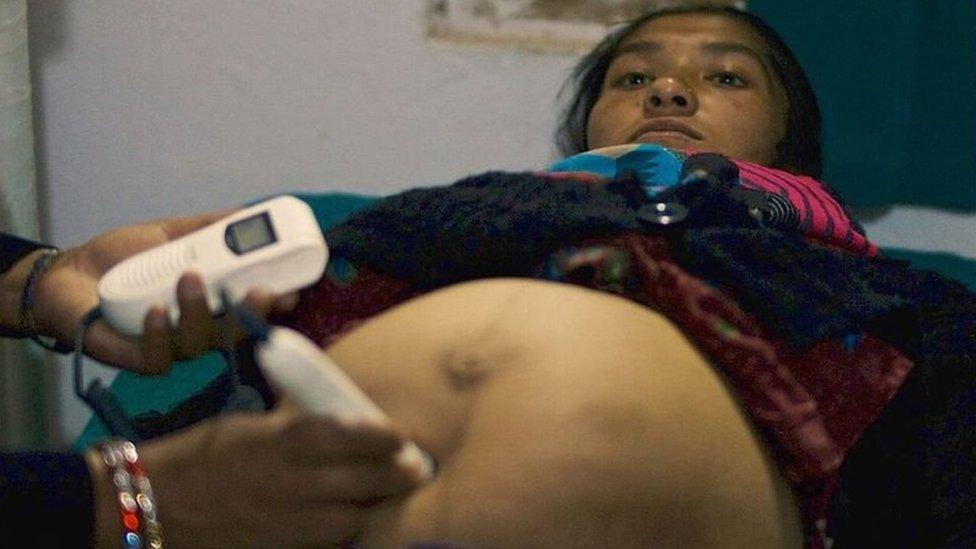Can poo power solve India's toilet problem?
- Published
The founders of Shri, Prabin Kumar, Anoop Jain and Chandan Kumar
India is in the midst of a toilet-building frenzy, the government has set aside $20bn (£15bn) for the health initiative and aims to stop people having to defecate in the open by 2019.
One social enterprise in one of India's poorest areas is taking on the challenge of building public toilets.
It is using the waste from the toilets to help pay for their upkeep.
More than half a billion people in rural India do not use toilets.
It's a situation which leads to a host of health and social problems, including children not going to school and women being assaulted or fearing assault when they go to secluded areas to relieve themselves.
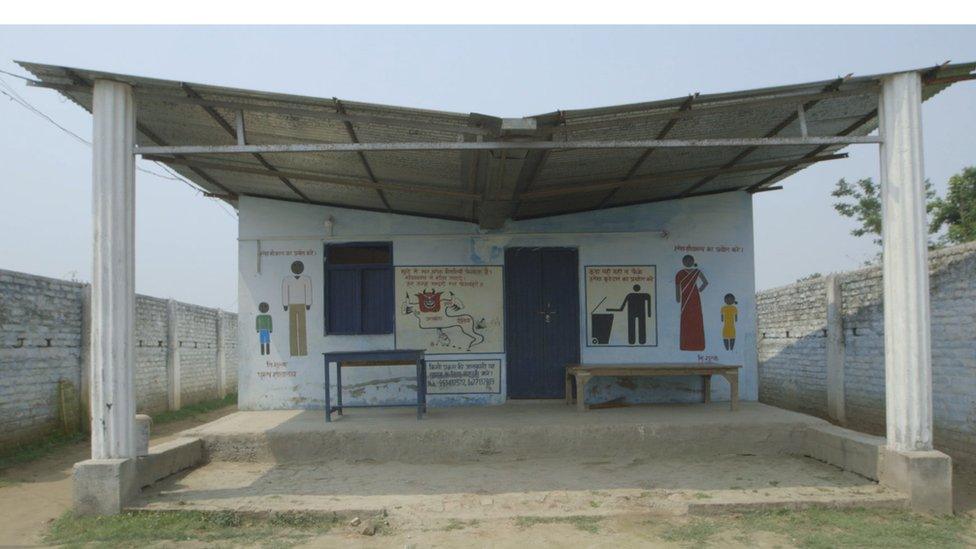
The first Shri facility in the village of Nemua in Bihar State in India
Alongside official efforts social entrepreneurs, like the team behind Shri or Sanitation and Health Rights in India, are coming up with some inventive proposals.
Upkeep payments
When Prabin Kumar, one of the founders of Shri, was at school he would often be late because he had to walk more than a kilometre to get to the river to defecate.
Today he's one of three social entrepreneurs building toilets in Bihar state in north east India that communities can use for free.
Many of the state-run toilets have encountered problems when it comes to clearing the waste and paying for maintenance and upkeep.
Instead of clearing the waste, Shri toilets channel it into a biodigester.
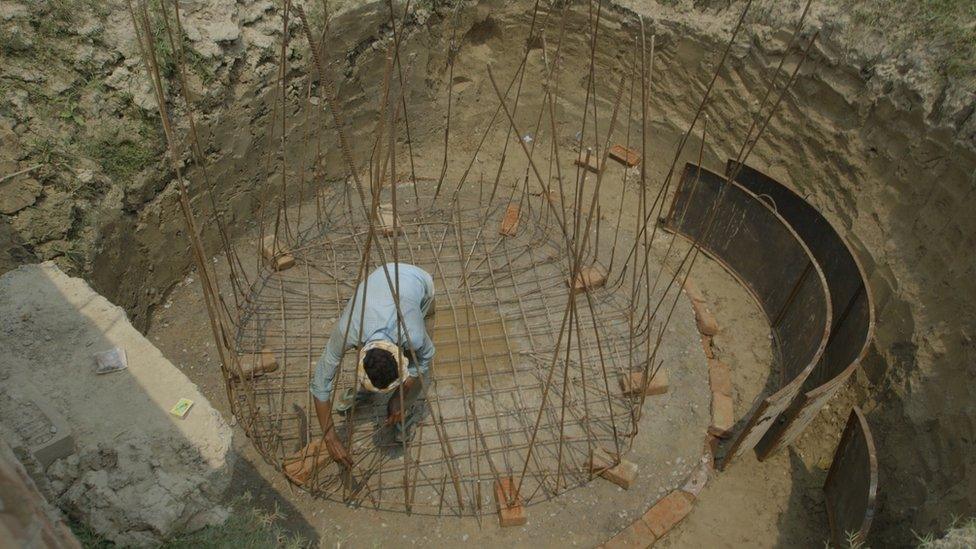
A new biodigester being built in the village of Belle Messari in Bihar, India
The biodigester then provides electricity which powers a pump for ground water.
This is put through a filtration process at the facility and the filtered water is then bottled and sold for half a rupee (£0.01) a litre. The money from the water pays for the maintenance and upkeep of the toilets.
Shri currently sells 3,000 litres of filtered water a day.
Community toilets
Prabin Kumar and fellow founder Chandan Kumar met Canadian-born engineer Anoop Jain in 2010.
Four years later they built their first community toilet in the village of Nemua in the Supaul district of Bihar state. The facility contained eight toilets for men and eight for women.
The facilities open at four in the morning and close at ten at night.
The team have so far built toilets in five villages, each of which they say is used around 800 times a day.
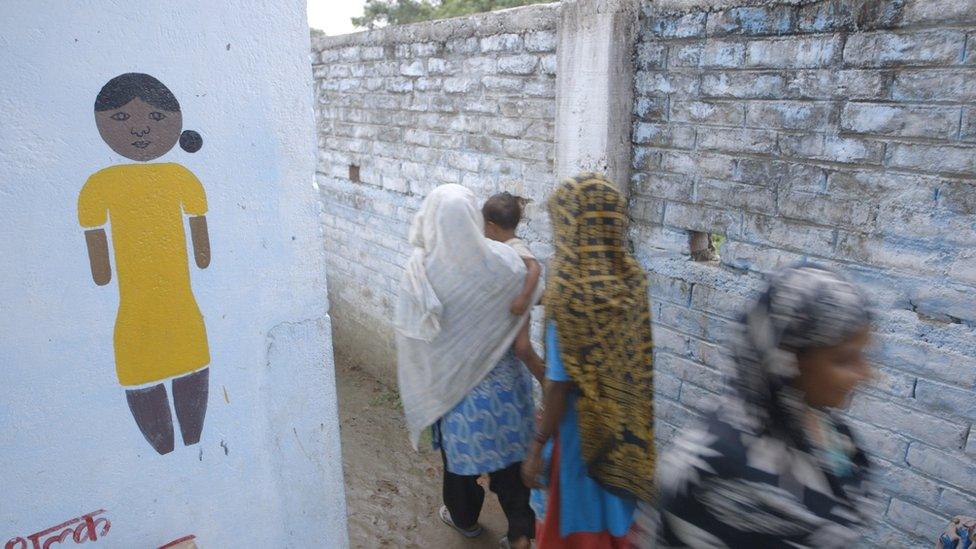
Each Shri facility receives 800 visits a day
They estimate that each facility has a start-up cost of around $30,000, but the sales of the filtered water mean that once built the facilities then pay for themselves.
"We choose villages where there is no government facility yet," Chandan Kumar explains.
Before building starts they run an awareness campaign in the village. This is because the barriers to people changing their sanitation habits are often cultural - not just because the facilities have not been available.


The BBC's Innovators series reveals innovative solutions to major challenges across South Asia.
Ever heard of the concept of "jugaad"? It's a Hindi term meaning cheap innovation.
If you have created a life hack or innovation that you are proud of, or spotted one while out and about on your travels, then share your picture with us by emailing yourpics@bbc.co.uk, external, use the hashtags #Jugaad and #BBCInnovators and share your picture with @BBCWorldService, external, or upload your submission here, external.
Learn more about BBC Innovators.

Enterprising visions
"We really count on entrepreneurs to provide innovation," says Nicolas Osbert from Unicef, India.
"They have the thinking to create new ways of doing business, new ways of addressing sanitation both on the technical side but also on the promotional side."
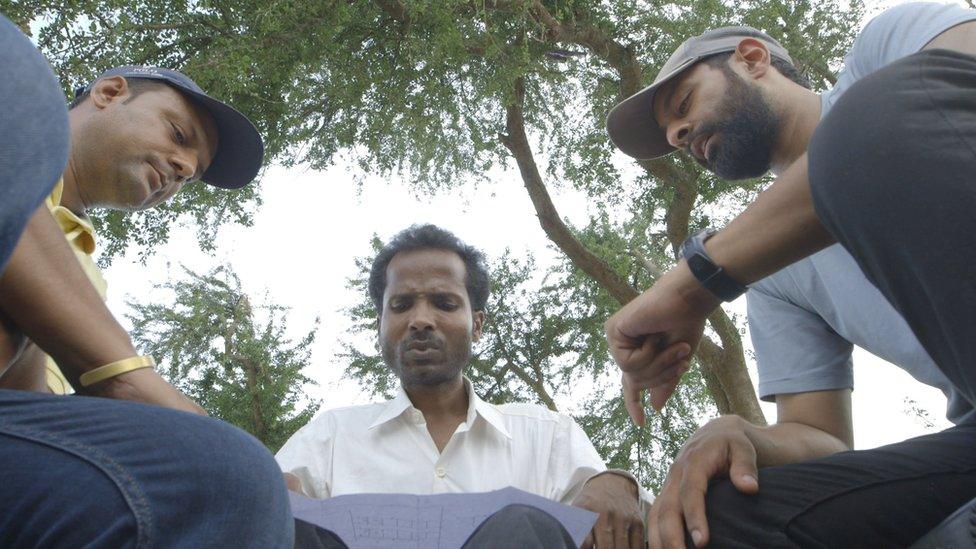
The founders of Shri believe that their facility design could be rolled out across India
Yet Mr Osbert says that while ideas like the biodigester are interesting, he wonders if it could prevent the project expanding on a large scale.
However, the Shri team have big ambitions. "Our plan is to work closely with the government to scale our intervention," says Mr Jain.
"We would like to get funds from the government for construction of more facility centres.
"Our facilities will be managed and operated by communities, and Shri will ensure that they are being used and well maintained."
His co-founder Chandan Kumar agrees: "We want to see ourselves in a position where our initiative helps our society to become 100% open defecation-free."
- Published7 November 2017
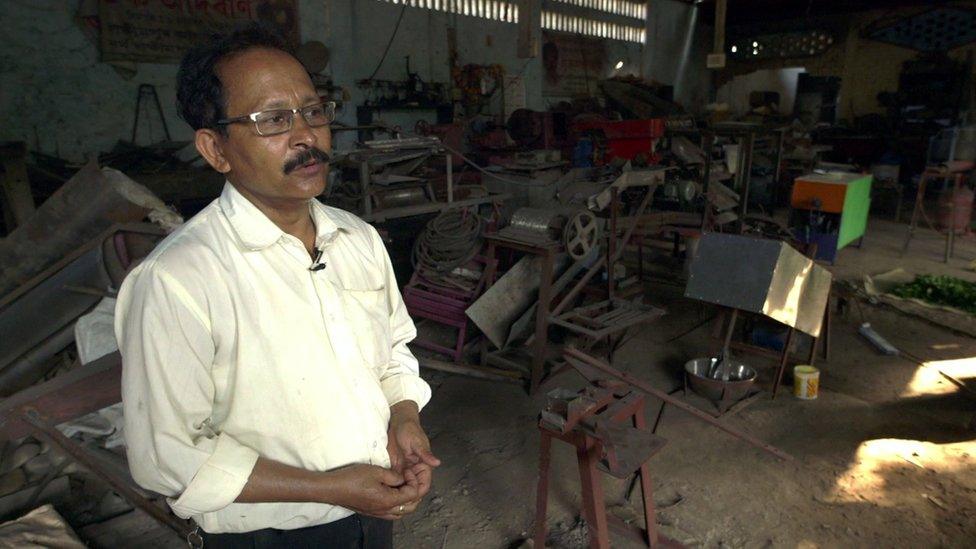
- Published24 October 2017
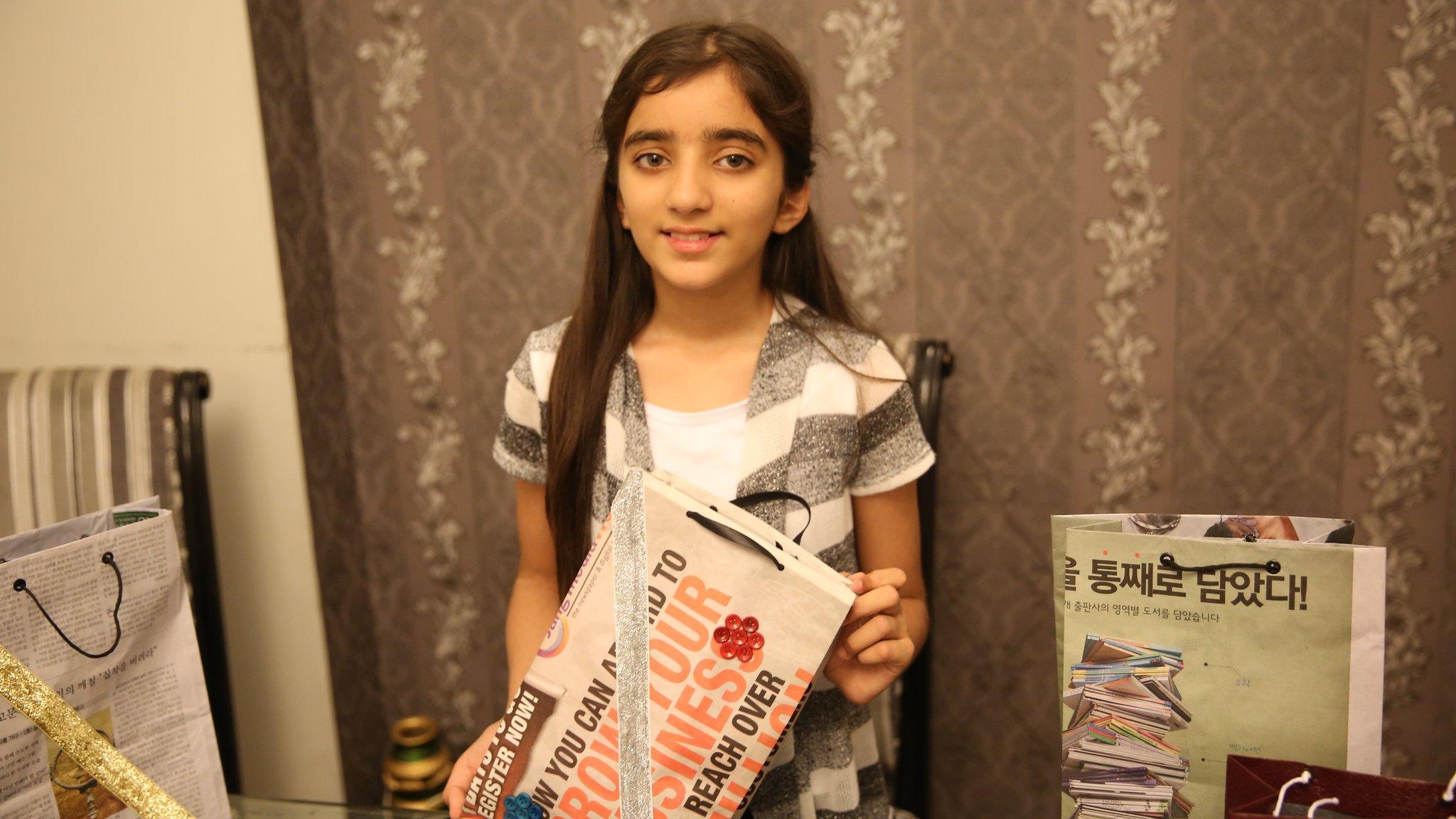
- Published17 October 2017
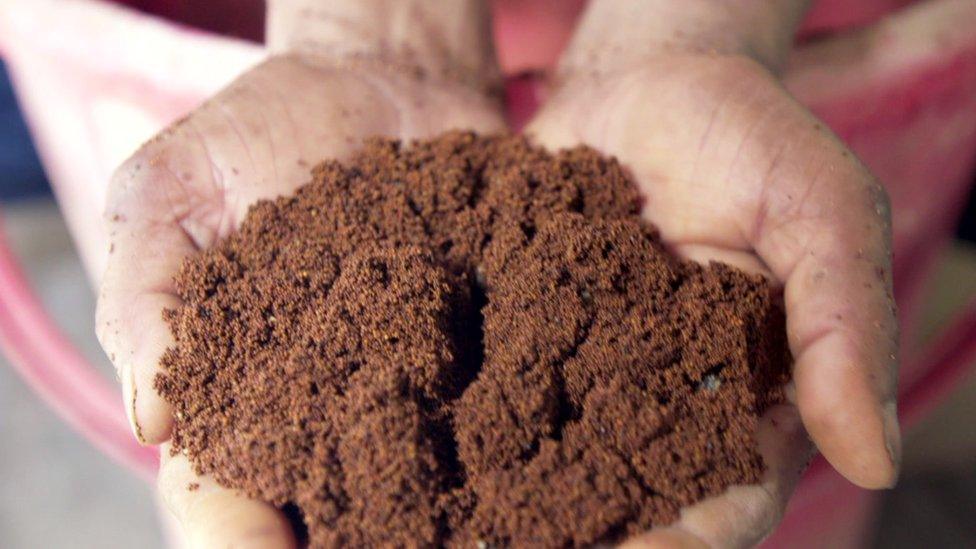
- Published3 October 2017
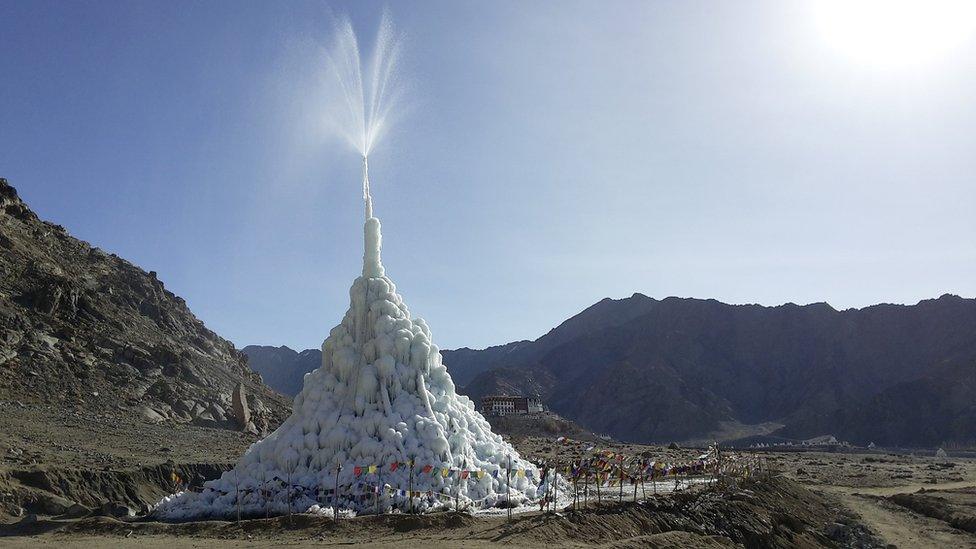
- Published10 October 2017
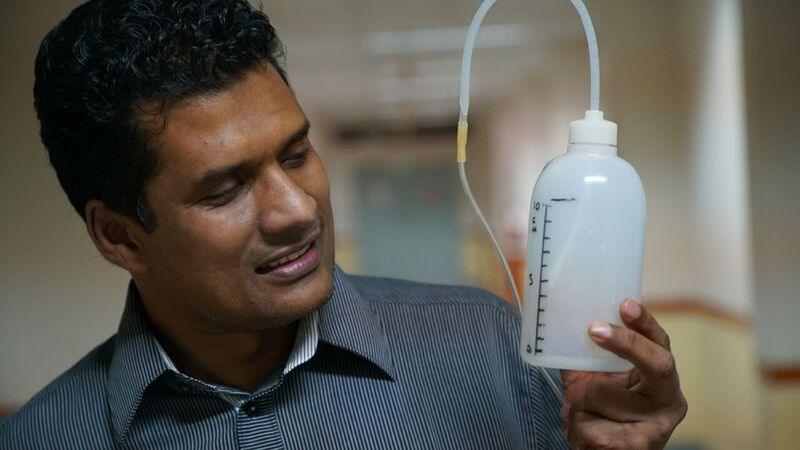
- Published31 October 2017
